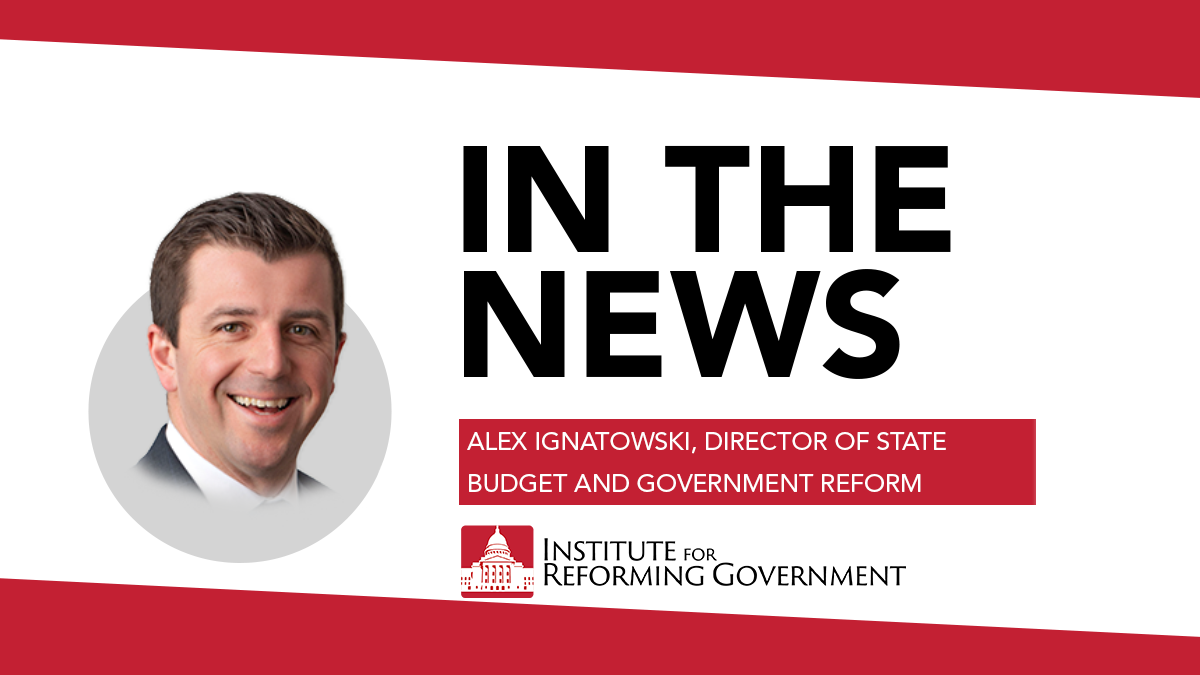This post originally appeared at https://reforminggovernment.org/featured-broadband-in-wisconsin/

(Lakeland Times) – Broadband in Wisconsin
In 2023, it goes without saying that the internet is crucial to everyday life. Work, school, social connection, and entertainment all rely on it. And yet, shockingly, there are still wide swaths of Wisconsinites who are not able to take advantage of the business connections, commerce, and social connection that most of us here in southeast Wisconsin don’t think twice about.
Under Governor Walker’s leadership, Wisconsin made a commitment to fix this. In 2014, the Governor and the Legislature created the Broadband Grant Program, housing it at the Public Service Commission (PSC). The goal was simple: use state funding to provide grants that would encourage the expansion of broadband to areas of the state that are either underserved or unserved. Since its inception, the program has distributed $300 million in grants across the state.
So how is this program doing?
Not well. Late last year, the nonpartisan Legislative Audit Bureau came out with a report that highlighted its lack of transparency and accountability. Grant scores and records were not kept, application guidelines were not followed, and the agency did not conduct proper oversight on providers.
And these are not the program’s only problems. The current standards for speed and what constitutes “underserved” are outdated, as is what happens with technology. The program fails to strategically target areas with the greatest need for internet access, and there is a general lack of buy-in from providers. Worse yet, the state is set to receive up to $1.1 billion in funding from the federal Broadband, Equity, Access, and Deployment (BEAD) program. With the current state of Wisconsin’s broadband program, there is a heightened risk that these funds will not be used efficiently, effectively, or connect as many homes and businesses as possible.
The Broadband Grant Program needs to be reformed — and fast. Given the issues raised by the Audit Bureau, the program needs to move to another agency with grant experience and needs more legislative oversight. This can be accomplished by moving the program from the PSC to the Department of Administration, and making the director a gubernatorial appointee with the advice and consent of the Senate.
Goals need to be simplified and standards raised. For example, Wisconsin should do away with the “underserved” category and label any area of the state without access to high-speed internet as unserved.
The program also needs more buy-in. This can be done by requiring providers to match 40% of the project costs and give greater deference to providers who match more. This will also serve to get more money into more projects. We should also let the private sector build it. Local governments do not have the funding or expertise to do what the private sector can do better and at a lower cost.
Finally, the program needs to think more strategically. The current program simply accepts applications from providers to build infrastructure where they see fit. A recent study showed that this approach is no better than a simple lottery. The state could implement a reverse auction system, where unserved areas are identified and the state accepts bids to fill the need. This strategic approach would lead to more homes and businesses being connected in the areas of Wisconsin that are truly unserved.
The state budget process is in full swing right now in Madison, and lawmakers will likely have the Broadband Grant Program in their sights when they start voting on issues next month. If we want to make sure that federal BEAD funds are spent wisely and put to their greatest use, Wisconsin needs to reform the program. Lawmakers should consider these ways to make the program more efficient, effective and reach the most people.
Alex Ignatowski is the director of state budget and government reform for the Institute for Reforming Government.
…
You can read the full article here.